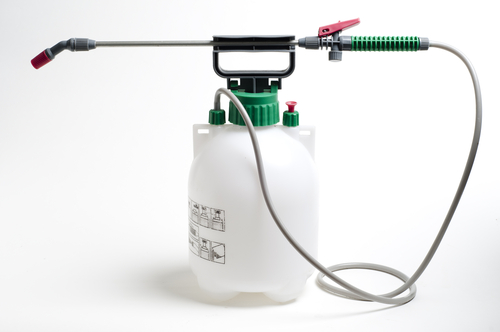Pesticide labeling continues to be one of the most violated aspects of the Federal Insecticide, Fungicide, and Rodenticide Act (FIFRA), and the Environmental Protection Agency (EPA) does not hesitate to investigate facilities and impose penalties when public health and the environment are at risk. Take a look at what one company did to warrant one of the biggest FIFRA penalties ever.
 |
In December 2013, the EPA announced one of its largest penalties ever against a Florida-based pesticide producer for several violations of FIFRA. The $1,736,560 civil penalty was the result of several inspections and a subsequent investigation beginning in early 2012.
The company produces pesticides in facilities in Florida and Alabama and also operates distribution centers in Connecticut, Massachusetts, Illinois, Michigan, Florida, Indiana, and Pennsylvania. The majority of the company’s products are sold to golf courses, with lesser quantities marketed to horticulture-nursery, turf, and landscape operations. The company does not sell to retail outlets or to individuals, and is both a producer or “primary registrant” and a “supplemental” distributor of pesticides registered by other companies.
Forget expensive calls to lawyers and consultants. With Enviro.BLR.com, you get instant access, 24/7. Try it out today and get an the 2014 EHS Salary Guide, absolutely free. Download Now.
According to the EPA, the company was first inspected at multiple sites in March 2012 by both the EPA and states, resulting in “a large number of FIFRA violations.” Additional inspections by EPA Region 1 revealed “substantial noncompliance” with FIFRA regulations and in April 2012, the EPA issued a stop sale, use, or removal order (SSURO). Continued inspections uncovered more violations, and in September 2012, the EPA issued a second SSURO to the company.
According to the settlement with the EPA, the company was alleged to have sold or distributed pesticides with no label or with completely illegible labels more than 350 times from 2010 to 2012. In addition, the EPA alleged the company also sold or distributed pesticides in violation of a prior SSURO and was also found to have produced pesticides in its Alabama facility for several years before registering the facility under FIFRA regulations with the EPA.
Everything You Need for Environmental Compliance
Enviro.BLR.com puts everything you need at your fingertips, including practical RCRA, CAA, CWA, hazardous waste regulatory analysis and activity, news, and compliance tools. Try it at no cost or risk and get a FREE report.
The FIFRA regulations were promulgated to ensure that no pesticides are produced, imported, distributed, sold, or used in a manner that poses an unreasonable risk to human health or the environment. Without proper facility registration and reporting, the EPA cannot determine where and in what manner pesticides and devices are being produced, sold, and distributed. In addition, accurate, complete, and legible labels on all pesticides are essential to protecting the health and safety of the user and the environment and are required under FIFRA.
According to the Consent Agreement and Final Order (CAFO), the penalty was assessed based on violations of several sections of FIFRA, including:
- Section 12(a)(1)(E), which makes it unlawful for any person in any state to distribute or sell to any person any pesticide that is adulterated or misbranded,
- Section 2(q)(1), which defines “misbranded” including containing false or misleading information, lacking the FIFRA registration number, does not contain required information properly placed and legible, directions for use, and does not contain a warning or cautionary statement as required,
- Section 7(a), which requires that no pesticides subject to FIFRA may be produced without first registering the production facility with the EPA and then submitting required information such as annual pesticide production reports,
- Section 12(a)(2)(L), which makes it unlawful for any pesticide producer to violate any FIFRA provisions, and
- Section 12(a)(2)(I), which makes it unlawful to violate any order issued under FIFRA.

So why not publish the name of the “Florida-based pesticide producer” that “produces pesticides in facilities in Florida and Alabama and also operates distribution centers in Connecticut, Massachusetts, Illinois, Michigan, Florida, Indiana, and Pennsylvania”?